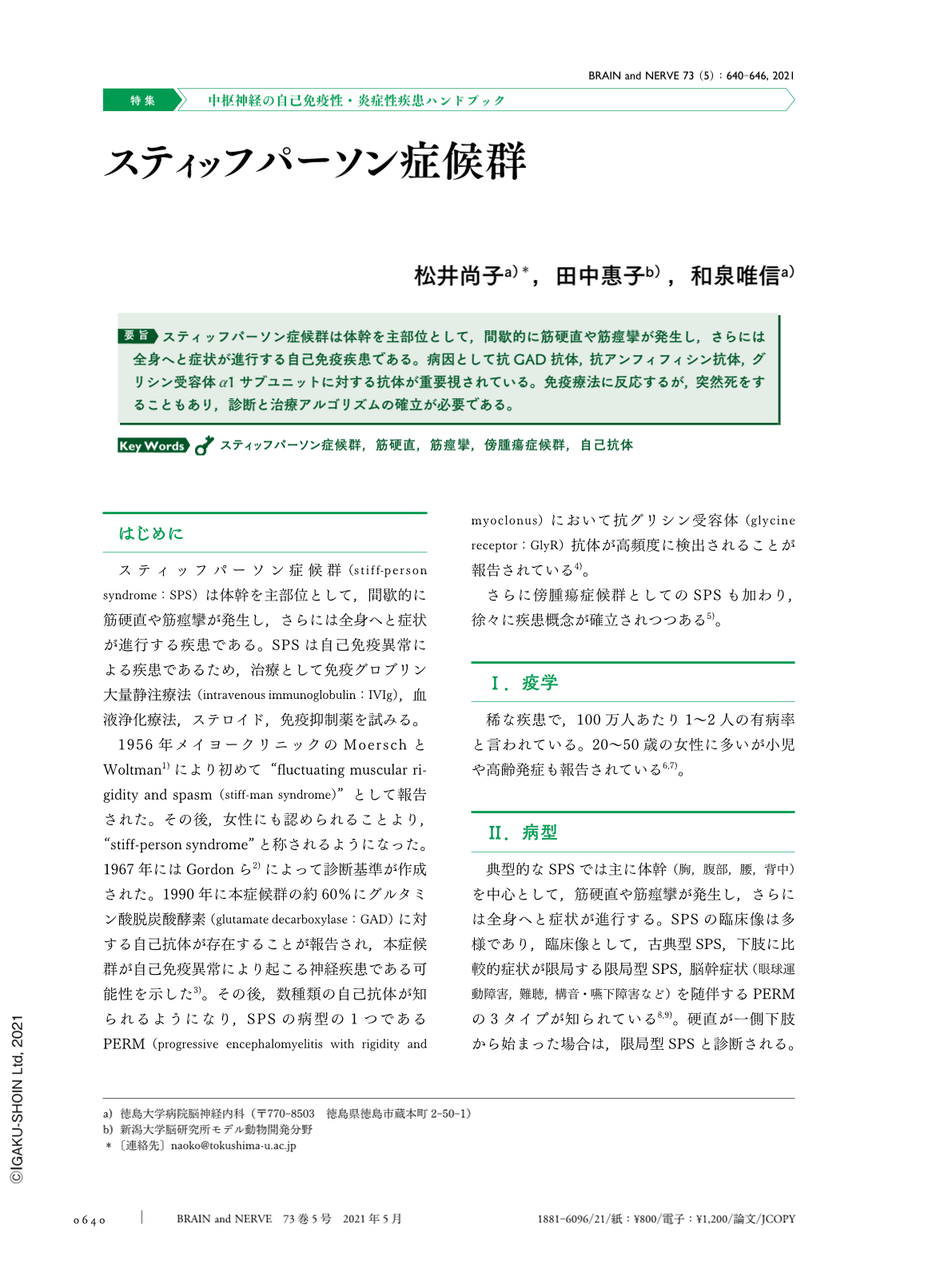Japanese
English
- 有料閲覧
- Abstract 文献概要
- 1ページ目 Look Inside
- 参考文献 Reference
スティッフパーソン症候群は体幹を主部位として,間歇的に筋硬直や筋痙攣が発生し,さらには全身へと症状が進行する自己免疫疾患である。病因として抗GAD抗体,抗アンフィフィシン抗体,グリシン受容体α1サブユニットに対する抗体が重要視されている。免疫療法に反応するが,突然死をすることもあり,診断と治療アルゴリズムの確立が必要である。
*本論文中に掲載されている二次元コード部分をクリックすると,関連する動画を視聴することができます(公開期間:2024年4月末まで)。
Abstract
Stiff-person syndrome (SPS) is a neurological disorder characterized by fluctuating muscle rigidity and painful spasms that occur spontaneously or are triggered by diverse stimuli. Partial or segmental forms of the disorder, such as stiff-limb syndrome (SLS) and the more severe disease called progressive encephalomyelitis with rigidity and myoclonus (PERM), are usually considered within the spectrum of SPS. SPS responds to immunotherapies, and several autoantigens have been identified. Most patients with SPS have high titers of antibodies against glutamic acid decarboxylase (GAD), the enzyme that limits the rate of the synthesis of γ-aminobutyric acid (GABA), and up to 15% have antibodies against the glycine receptor α-subunit.

Copyright © 2021, Igaku-Shoin Ltd. All rights reserved.


